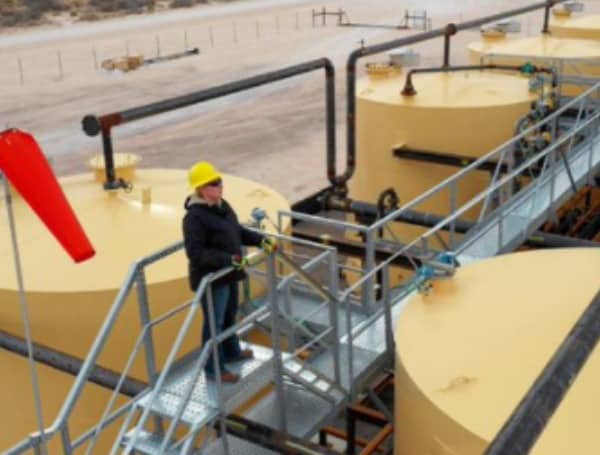The Energy Department announced Friday that it would begin buying oil to refill the U.S. Strategic Petroleum Reserve (SPR) at prices below $96 per barrel, even though the White House previously stated that it would begin buying back oil at a price of $67 to $72 per barrel.
The Energy Department declared that it would start to repurchase crude oil at a lower price than the $96 per barrel average price that barrels were previously sold for to secure a “good deal” for the taxpayer, according to an official press release.
However, the White House said in October that the department would buy oil back once the average price of oil reached $67 to $72 a barrel, touting the plan as a “win for taxpayers.”
The price of Brent crude oil, the leading global crude price benchmark, closed at $81.21 per barrel on Thursday, according to Business Insider.
President Joe Biden began draining the SPR in March to bring down gas prices after energy shortages became exacerbated by Russia’s invasion of Ukraine.
In the news: House Democrats Intro Legislation To Bar Trump From The Presidency
The nation’s emergency oil reserves are currently at their lowest level since 1984 and although gas prices have been falling since late November, the price of a gallon of gasoline is still 86 cents higher than it was when Biden was sworn into office, according to the Energy Information Administration.
In January 2023, the Energy Department will begin offering contracts to oil companies that bid to sell oil back to the Biden administration by no later than Dec. 28. The White House previously said that such deals will encourage oil companies to invest in domestic production and bring down energy costs.
The Biden administration has issued the fewest acres of land for federal oil and gas leases since the 1940s, The Wall Street Journal reported in September.
Although Biden has criticized fossil fuel producers for failing to produce enough fuel to bring down prices, energy executives believe that the administration’s negative attitude toward the industry is dampening investment, according to a June survey conducted by the Dallas Federal Reserve.
Visit Tampafp.com for Politics, Sports, and National Headlines, or signup for our free newsletter by clicking here.
Android Users, Click Here To Download The Free Press App And Never Miss A Story. Follow Us On Facebook Here Or Twitter Here.
